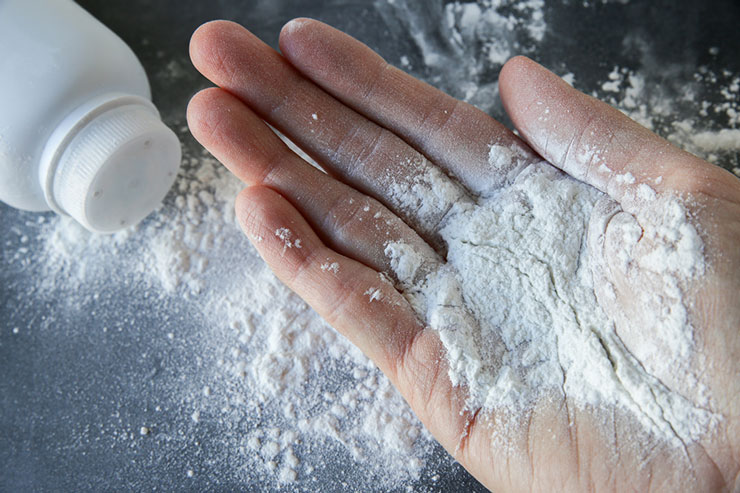Jury Awards $15M For Mesothelioma Death in Talc Lawsuit
Editors carefully fact-check all Drugwatch.com content for accuracy and quality.
Drugwatch.com has a stringent fact-checking process. It starts with our strict sourcing guidelines.
We only gather information from credible sources. This includes peer-reviewed medical journals, reputable media outlets, government reports, court records and interviews with qualified experts.

After a four-week trial, a Connecticut jury awarded $15 million to the family of a man who died of mesothelioma after he was exposed to asbestos-containing talc on the job at General Electric in the 1960s.
Brian Kenney, the family’s lawyer, praised the jury and thanked them for providing “a fair and just result for a family who lost a wonderful man to an asbestos-related cancer he never should have developed.”
The case was complicated and took many weeks to develop and the jury remained focused throughout, he added. The verdict in favor of Nicholas Barone’s family took two hours to deliver and found Vanderbilt Minerals liable for Barone’s death.
In addition to the $15 million award, the jury will also award punitive damages to be determined later. Punitive damages are awarded when a jury finds the defendant guilty of intentional misconduct or gross negligence.
“The jury found Vanderbilt Minerals LLC responsible, as the successor to International Talc, and further found that Vanderbilt Minerals LLC showed a reckless indifference to others because of its efforts to suppress knowledge that its talc contained asbestos,” Kenney said.
Deadly Talc Exposure Happened Decades Ago
Barone was a process engineer at the GE plant in Pittsfield, Massachusetts from 1965 to 1967 and was exposed to dangerous asbestos-containing talc in the course of his employment, according to trial evidence.
Mesothelioma is a disease known to be caused by asbestos exposure, and it also has a long latency. This means many people exposed to asbestos-contaminated talc may not develop mesothelioma for decades.
GE’s talc supplier, International Talc Co., sold the company hundreds of thousands of pounds of talc contaminated with asbestos — the very same talc that exposed Barone and caused him to later develop mesothelioma.
Vanderbilt assumed liability when it purchased International Talc in 1974. At the trial, the company claimed it wasn’t responsible for materials produced by International Talc, but the jury disagreed.
“It was a fair verdict and was based strictly on the facts. Everyone on the jury worked very well together and considered all the evidence before reaching a unanimous decision,” said jury foreperson and Bridgeport Councilwoman Jeanette Herron.
Barone died in June 2023 and is survived by his three adult children.
Johnson & Johnson Faces Thousands of Ovarian Cancer Talc Lawsuits
While asbestos-contaminated talc cases for mesothelioma continue, Johnson & Johnson still faces lawsuits that say talc products including Johnson’s Baby Powder led thousands of women to develop ovarian cancer.
As of May 2024, the health care giant faces 53,950 talc lawsuits in New Jersey multidistrict litigation, MDL 2738.
J&J continues to say its talc products are safe, though it stopped selling them in 2020 for what it called financial reasons.
In May 2024, the company offered $6.5 billion to settle 99.75% of all pending ovarian cancer claims through the bankruptcy of its subsidiary LTL. The company said it would resolve mesothelioma claims outside of this settlement.
Previous LTL bankruptcy plans — using a legal maneuver dubbed a “Texas two-step” — have been denied by courts and dismissed by plaintiffs.
Judge Thomas L. Ambro, one of the judges who denied one of LTL’s bankruptcy attempts, noted in his opinion that J&J had over $400 billion in equity value.
“LTL has a funding backstop, not unlike an ATM disguised as a contract, that it can draw on to pay its liabilities,” Ambro wrote in 2023.
Plaintiffs still must approve this latest settlement offer, though plaintiffs’ lawyers are doubtful it will happen.


